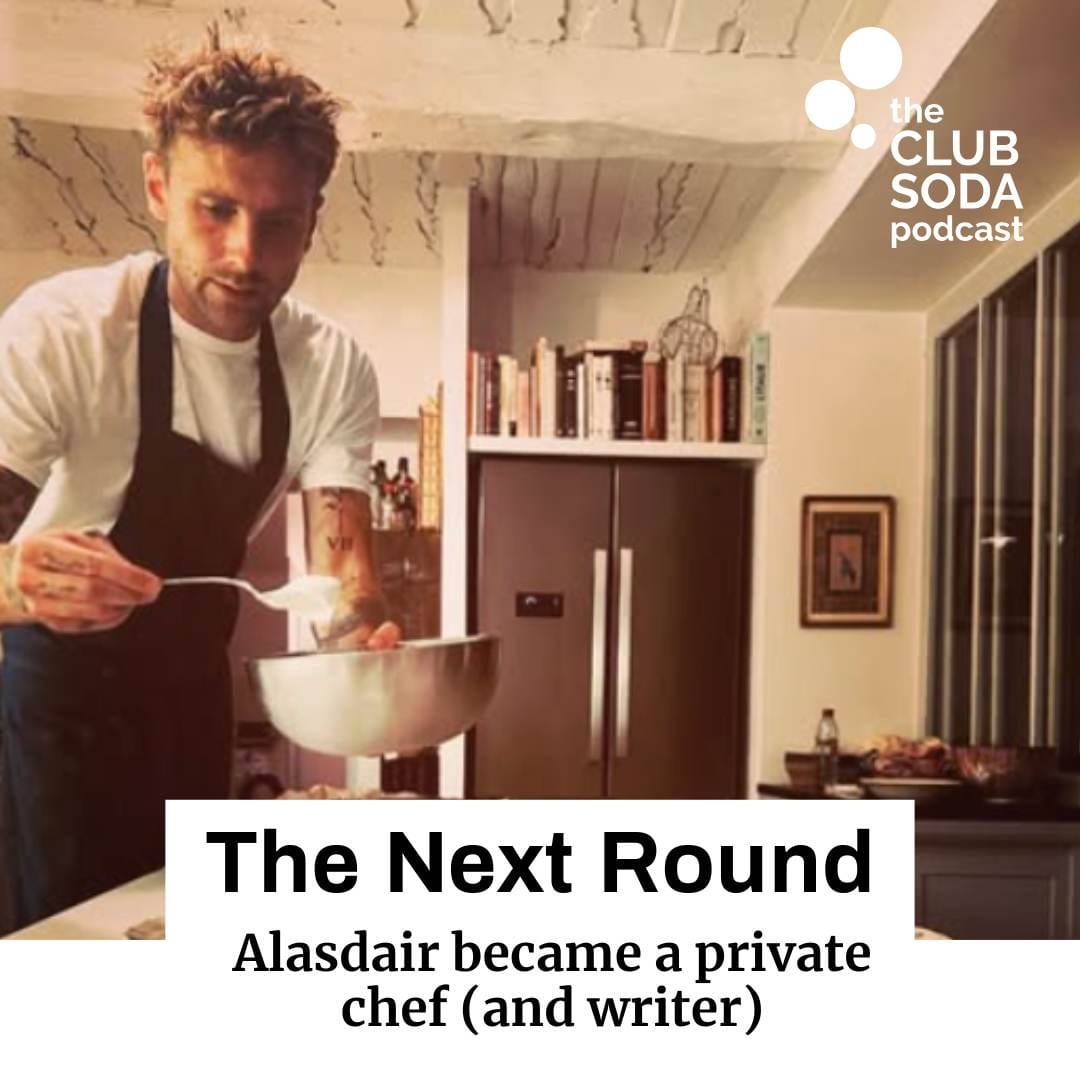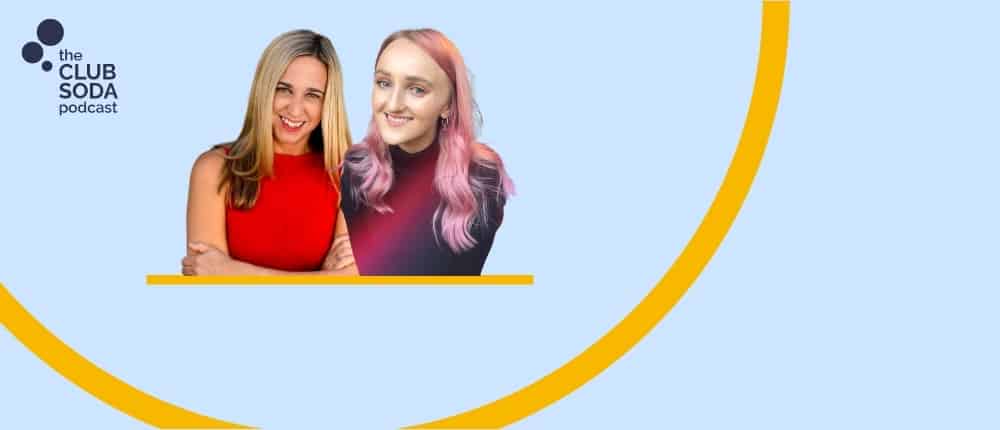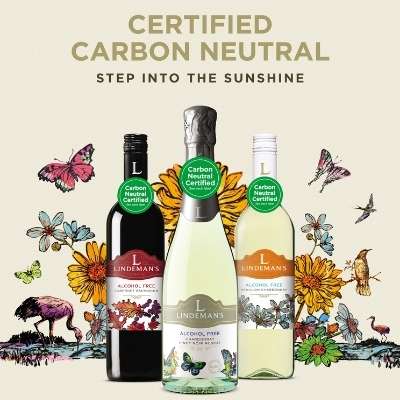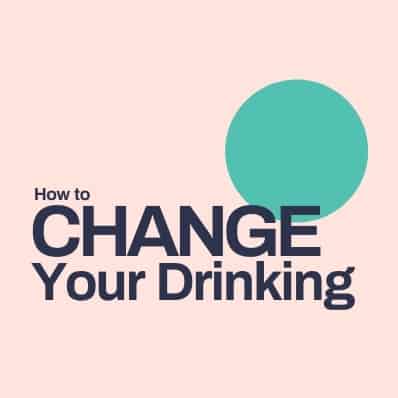
This website uses cookies to improve your experience. We'll assume you're ok with this, but you can opt-out if you wish. Read More
The Next Round: What happens after you change your drinking?

When it comes to enjoying life without the booze, Millie Gooch and Jill Stark have got it locked down. In this weeks podcast, they share how they changed their drinking, from tricky conversations with friends, to sitting with difficult emotions, and finding new ways to unwind. Our podcasts this month are sponsored by the wonderful folk over at Lindeman’s Wine.

We’ve partnered with Lindeman’s wine for our April podcasts – their winemakers use the spinning cone method to gently remove alcohol while retaining the great Lindeman’s taste. They are also proud to announce they are now certified Carbon Neutral. Available in Asda, Morrisons and Tesco throughout the UK.
Millie Gooch is a writer, speaker, activist, and founder of Sober Girl Society. Her first book The Sober Girl Society Handbook is now available (buy on Amazon UK, Amazon US, Amazon Australia or Amazon Canada). Millie is a fantastic advocate for sober and sober curious folk. Jill Stark is an award-winning journalist, author, mental health advocate, and media strategist. Her three books High Sobriety, Happily Never After, and When You’re Not Ok are great tools for changing your drinking (buy on Amazon UK, Amazon US, Amazon Australia or Amazon Canada). If you’re looking for more great books to help you on your journey, check out our recent review here.
My mental health was a massive part of why I stopped drinking. I noticed that my anxiety was getting worse, I was exhibiting symptoms of depression. I was quite a binge drinker. I was a real weekend warrior, I didn’t booze through the week quite happily. I always used to say ‘there’ll be no tequila shot left unturned’, because I would drink the bar dry come Friday. I would be the last one in the club, my friends would have to drag me home and then I’d spend the entire weekend hungover, anxious, thinking all my friends hated me, and wondering what I’d done.
Millie Gooch
I was a health reporter for a newspaper in Australia. I specialised in writing about alcohol, I wrote about Australia’s binge drinking culture. I literally won awards for writing about alcohol. I’d stand up and accept these awards for shining a light on Australias terrible binge drinking culture, and then I’d get absolutely shitfaced that evening. I didn’t see the disconnect between the two things. I slipped into the social norms, I didn’t see that my drinking was problematic, because everyone around me was drinking in the same way. It changed when I woke up with a hangover that I felt was going to kill me. The first few pages of my book describe this hanger in graphic detail. I jumped into my car to drive to McDonald’s, to feed the hangover anxiety that we all feel. I started driving the car and I had a violent panic attack. I’d had panic attacks a lot when I was a teenager, and in my early 20s, but hadn’t had one for years, I was nearly nearly 35 at this point. I had to pull over because the panic was becoming so much and that was the point where I was knew something had to change. I grew up in Scotland, where teetotal ism is a crime punishable by death. I went through a very serious break with depression and crippling anxiety that I nearly didn’t survive. But I started to learn much more about myself, I could no longer ignore the direct correlation between the dip in my mood and the booze. My mental health is always going to be up and down, I’ve had anxiety since I was a child, but if I’m going to manage it well, drink doesn’t fit. To me, drinking when you have chronic anxiety is like pouring petrol on a bonfire and watching your life burn. It’s just a much safer option to not drink.
Jill Stark
I started to unpick the direct effects of alcohol, the way it affects you chemically. There were so many ways that it was indirectly affecting my mental health. Because I was so hung over every weekend I would socially withdraw, I wouldn’t see friends. I didn’t have social connection, I wouldn’t get outside I wouldn’t even open my curtains, I wasn’t getting sunlight. I was eating dominoes for breakfast, the thought of fruit and vegetables made me feel physically sick. I wasn’t getting any vitamins or nutrients or anything like that. Sleep is one of the biggest things that is affected. I saw a study where they deprived rats of a particular stage of sleep, and it shortened their lifespan by years. All these things that I started to learn about made me think about my mental health.
Millie Gooch
It’s not just the immediate effects. It’s the things that you do when you’re hungover, like not exercising or eating too much rubbish. All these things affect your mood and you can feel withdrawn, you end up cancelling plans. I keep a diary on my phone using a free app called New Flow. You basically pick a colour for every day. At the end of every day I use my app to chart my mood. I mark a really bad day with dark blue, a bad day is light blue, a really good day is hot pink. That’s an I started to chart that. There is an extraordinary difference between the month before I stopped drinking and the month after. It’s not that there’s no down days, but the down days don’t last for a long time. That was such a great visual reminder of the effect the drinking had. I use it to track my anxiety too. When I am anxious, my brain will lie to me and tell me ‘you’ve always felt terrible, you’ve been in this anxious depressed hole for months’. My mood diary gives me a much more factual representation of what’s happening. I don’t think I really appreciated all the ways in which alcohol was affecting me. If you’re predisposed to depression or anxiety, it’s going to have a profound impact. Friends of mine who have taken breaks from drinking have said that they just cannot believe how much their sleep improved almost immediately. When you’re drinking you’re not actually reaching that deep stage of sleep, it’s not really giving you anything nourishing. If I was drinking it would make the difficult times even more difficult to deal with. We think that alcohol takes the edge off, but the next morning, those edges are sharper, and they cut you deeper. That’s why I feel that booze can be really risky if you’re prone to anxiety and depression.
Jill Stark

If you are looking for some guidance with changing your drinking, why not check out our courses? You can start with a free course, or check out our longer courses. Club Soda has loads of resources to help you on your journey, whether you want to stop, take a break, or cut down.
When I first stopped drinking, I had an immediate relief of anxiety, because chemically, it was out my system. I felt great, I had so much energy, I was dancing around at the time. Then it got to about four or five months. And I started to think, ‘Oh, actually, I’m starting to get some feelings now’. Stuff that I’d been pushing away for the through my drinking suddenly came up to the surface. So then I had a bit of a dip. I think that’s when I had to put more of some of those tools in place. I went to therapy, and I just started learning more about what was I was experiencing.
Millie Gooch
We live in a culture that tells us that we can exorcise our feelings by using food or booze or social media or shopping. ‘Buy these breathable yoga pants and your life will be perfect!’. That’s the consumer culture that we live in. Alcohol is sold to us as the key to belonging, the key to fixing all of your troubles. When you take booze out of the equation, it can leave you feeling quite naked and vulnerable. All of a sudden, when you have a difficult day or you have uncomfortable feelings, you can’t reach for the booze, you’ve got to sit with your feelings. But what is so rewarding about that process is that you learn so much about yourself. You learn that you’re a lot stronger than your brain was telling you. And you learn to make space for those feelings, open up to them and lean into the chaos. You’re stripped bare and left to deal with stuff that perhaps you have ignored for a really long time. But that’s such a powerful experience if you’re willing to use it. It has deepened my friendships, and it has deepened my connection to myself. It’s allowed me to feel things that for a long time, I tried not to feel. That’s confronting, but ultimately, it’s rewarding.
Jill Stark
The pandemic is hitting us all hard. We are going through a collective trauma, this is not like anything any of us have ever experienced. We don’t know when it’s going to end, we feel like we’ve got no control. I do think that’s when people tend to drink because ‘we might as well’. I completely understand that. But I do think that that is really not the answer. It could actually make things significantly worse when you’re trying to cope with difficult stuff. I’ve been crying all day. I really let myself feel it because I think that’s something that we’re kind of taught to hide and we should just suck it up and we should be strong. There is comfort in allowing yourself to grieve and not trying to push those feelings away, which is often what we’re doing when you reach for the booze. I felt a lot better after letting myself crying. Tears are just your body’s way of releasing emotional pain, it actually makes you feel better when you get that out. I’m not saying that every time I feel stressed I cry into the carpet, but that’s one of my coping strategies. I journal a lot I write everything down. I talk to friends, I walk, I workout. There are many things we can do to cope that aren’t drinking. Try things, think of it as a circuit breaker. As yourself what you can do before you use alcohol. Let yourself feel what you’re feeling rather than trying to numb it.
Jill Stark
I’m also a massive advocate of crying. For a long time I think I associated booze with crying. I would push the feelings down down and then I would go out and drink and I would drunk sob. The next morning, I still felt kind of rubbish. Now it’s like a good old cry and then I feel great. And I also advice doing anything else before having a drink. Try having a bath, relax with a book. I know they’re not for everyone, but alcohol free alternatives are great for me. I love the ritual of getting a nice glass and ice and enjoying a really fancy tonic or soda.
Millie Gooch
I’ve learned that my confidence does not come from a bottle, you can’t measure confidence in standard drinks. A lot of the things that we think we need alcohol for are actually red herrings. We don’t need booze to date or to have sex, or to chat to people. That’s not to underplay people who might have really strong social anxiety. But I think it’s only when you start practising going to these events and doing these things without alcohol, that you realise the strength in you. For me, it’s been reclaiming my identity, I was always the party girl, first on the dance floor and last to leave the party. They named drinking awards after me at work, that was who I was. I went to a Christmas event last year, it was a long, boozy lunch with a group of about 20 friends. We started at midday and at five o’clock, everyone was pretty merry, and heading on to the after party. I went home and colour coded my bookshelf. I had a very nice time for five hours and enjoyed some great chats, but I left because everyone was so drunk. It’s quite boring when you’re sober listening to people talk absolute nonsense, repeating the same story six times and not really listening to each other. At first I was worried that made me boring. But I enjoyed sorting my bookshelves. It’s about reclaiming who you are and not not feeling that you have to be out until three in the morning to be a good friend or to be a fun person.
Jill Stark
Booze gives you this synthetic confidence. It’s not real confidence and you don’t carry it with you then throughout the rest of your life. Through sobriety I’ve gained so much authentic, real confidence. I love a sober date. I’ve proven to myself that it’s fine, and that builds the confidence within you. The next time you do a sober date, your brain has processed that you did it before and you were fine. With alcohol you build that false confidence, then you start to associate confidence with booze, which almost makes you less confident because you begin to rely on it. When I got sober I felt like I didn’t know who I was any more. Every present that anyone had bought me related to booze. People tagged me in tequila cheesecake recipes on Facebook, I was that person to them. So one of the biggest things for me has been finding out who Millie is.
Millie Gooch
I think it’s also linked to performative connection, those connections that we have when we’re drinking. You’re drunk saying ‘I love you so much, you’re my best friend’ or whatever, but it’s just nonsense. I struggled with that, I worried I wouldn’t have connections with people. I made a pact with myself when I stopped drinking. I promised that if I wanted to tell someone I love them, or say how much they meant to me, I was going to do it completely sober, because I don’t need to be taught to do that. When you wake up the next morning, knowing that you’ve had this deep meaningful conversation with someone, but you’re both drunk, there’s always a bit in the back of your head going, did they really mean that? Or was it the booze talking? Did they say that to everyone?
Jill Stark
I was 34 when I stopped drinking. I would have loved to stop drinking in my 20s. As you get older, you can’t drink and not have the impact, you can be hungover after one glass of wine when you’re in your 40s. I found it really challenging because I was in a group of friends with a big drinking culture. And there were a lot of really difficult conversations. Some people were fine with it, but some people really couldn’t handle it. I didn’t always hear it directly from them, I’d hear from other people that they were saying things like ‘Jill’s judging us, because she’s not drinking’. I was called ‘un-Australian’, which is a real insult. I ended up talking to one woman privately. I said ‘I hear that you’ve got a few issues. I just wanted to talk through what’s going on and hear your point of view’. She said ‘well, we all drink in the same way that you were drinking. And then you stopped. So you’re saying that what we’re doing is wrong’. I had to explain it to her. I said ‘the way that I was drinking was beginning to have consequences for me that I could no longer handle. If you drink in that way and you don’t have those consequences then good luck to you.’
Jill Stark
Some aren’t ready to look at their own drinking and can be defensive, because it’s challenging for them to think about it. If you’re the biggest drinker in a group of friends as I was, you’re party girl. If biggest drinker removes herself from the group, someone else is then at the top of the top of that ladder, and they become the biggest drinker in the group. It becomes quite confronting when people have to look at their own behaviour. I’ve made a very concerted effort to not be judgmental and to write the book in a non-judgemental way. I don’t judge anyone who drinks. With my friends now, it’s just not an issue because they know that this decision has been 95% about my mental health, and they saw me nearly die. I was very, very unwell. It’s still challenging. We go out in a group and they’re all still big drinker, and it does become difficult being the only person in the group not drinking. I prefer the one on one or the small catch ups rather than the big group dynamic.
I think, no matter what age you give up drinking, you will have a different struggle and a different. When I stopped, people couldn’t fathom why I stopped drinking in my partying prime. They used to see the fun parts, they used to see that the me dancing until 3am. But they didn’t see me crying the next day and shaking with anxiety, trying search where I’d been on Google Maps because I couldn’t remember how I got home. One of the biggest things I did was sit down and have really honest conversations with my friends. I said ‘this is the right decision for me, you crack on I’m going to be there, this isn’t gonna change our relationship. But this is just something I have to do for me’. Everyone was really supportive. I think being vulnerable and honest with my friends really helped.
Millie Gooch
Club Soda is an Amazon Associate and earns a fee from all qualifying Amazon purchases made using affiliate links featured on this site.
This website uses cookies to improve your experience. We'll assume you're ok with this, but you can opt-out if you wish. Read More
| Name | Domain | Purpose | Expiry | Type |
|---|---|---|---|---|
| wpl_user_preference | joinclubsoda.com | WP GDPR Cookie Consent Preferences. | 1 year | HTTP |
| PHPSESSID | www.tickettailor.com | PHP generic session cookie. | 55 years | HTTP |
| AWSALB | www.tickettailor.com | Amazon Web Services Load Balancer cookie. | 7 days | HTTP |
| YSC | youtube.com | YouTube session cookie. | 55 years | HTTP |
| Name | Domain | Purpose | Expiry | Type |
|---|---|---|---|---|
| VISITOR_INFO1_LIVE | youtube.com | YouTube cookie. | 6 months | HTTP |
| Name | Domain | Purpose | Expiry | Type |
|---|---|---|---|---|
| _ga | joinclubsoda.com | Google Universal Analytics long-time unique user tracking identifier. | 2 years | HTTP |
| sbjs_migrations | joinclubsoda.com | Sourcebuster tracking cookie | 55 years | HTTP |
| sbjs_current_add | joinclubsoda.com | Sourcebuster tracking cookie | 55 years | HTTP |
| sbjs_first_add | joinclubsoda.com | Sourcebuster tracking cookie | 55 years | HTTP |
| sbjs_current | joinclubsoda.com | Sourcebuster tracking cookie | 55 years | HTTP |
| sbjs_first | joinclubsoda.com | Sourcebuster tracking cookie | 55 years | HTTP |
| sbjs_udata | joinclubsoda.com | Sourcebuster tracking cookie | 55 years | HTTP |
| sbjs_session | joinclubsoda.com | SourceBuster Tracking session | Session | HTTP |
| Name | Domain | Purpose | Expiry | Type |
|---|---|---|---|---|
| mailchimp_landing_site | joinclubsoda.com | Mailchimp functional cookie | 28 days | HTTP |
| __cf_bm | tickettailor.com | Generic CloudFlare functional cookie. | Session | HTTP |
| NID | google.com | Google unique id for preferences. | 6 months | HTTP |
| Name | Domain | Purpose | Expiry | Type |
|---|---|---|---|---|
| _ga_10XZMT03ZM | joinclubsoda.com | --- | 2 years | --- |
| AWSALBCORS | www.tickettailor.com | --- | 7 days | --- |
| cf_clearance | tickettailor.com | --- | 1 year | --- |
| VISITOR_PRIVACY_METADATA | youtube.com | --- | 6 months | --- |
Join Club Soda for 10% off your first order of drinks for UK delivery. Plus get our latest news and special offers for members to choose better drinks, change your drinking and connect with others.
If you get an error message with this form, you can also sign up at eepurl.com/dl5hPn